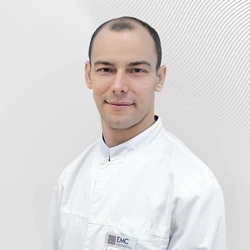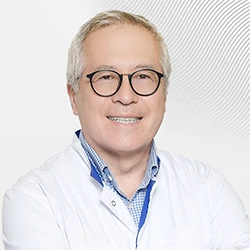Urinary incontinence
Says Anvar Yuldashev, a coloproctologist and EMC oncologist
What is fecal incontinence?
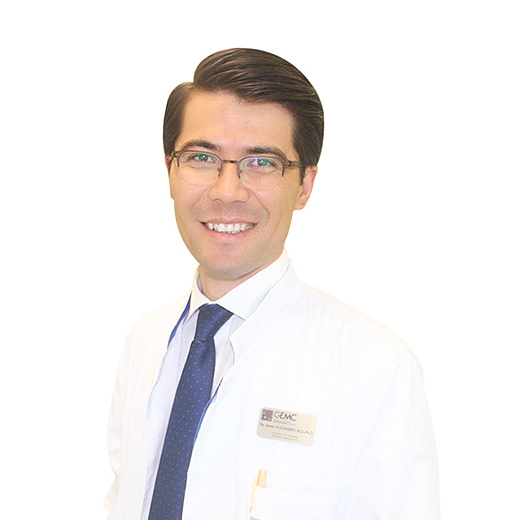 Normally, the anal sphincters (locking muscles) are able to hold solid, liquid and gaseous intestinal contents not only in various body positions, but also during physical exertion, coughing, sneezing, etc. Fecal incontinence is a violation of the ability to hold until the appropriate time and control the discharge of gas and stool. In the practice of a coloproctologist, this is a fairly common problem, but it is rarely the direct cause of going to the doctor, and becomes one of the complaints of other proctological diseases – rectal prolapse, anal fissure, inflammatory bowel diseases and many others.
Normally, the anal sphincters (locking muscles) are able to hold solid, liquid and gaseous intestinal contents not only in various body positions, but also during physical exertion, coughing, sneezing, etc. Fecal incontinence is a violation of the ability to hold until the appropriate time and control the discharge of gas and stool. In the practice of a coloproctologist, this is a fairly common problem, but it is rarely the direct cause of going to the doctor, and becomes one of the complaints of other proctological diseases – rectal prolapse, anal fissure, inflammatory bowel diseases and many others.
There are three degrees of sphincter insufficiency: at grade 1, patients do not retain gases, at grade 2, incontinence of liquid feces joins this symptom, at grade 3, patients cannot retain all components of intestinal contents (gases, liquid and solid feces). There are special scales for assessing the severity of incontinence. EMC coloproctologists consider the Wexener scale and Wexnerscore to be the most convenient.
What are the causes of fecal incontinence?
There are many causes of fecal incontinence. The most common of these is injury to the muscles and nerves of the pelvic floor, muscles, ligaments, and tissues supporting the uterus, vagina, bladder, and rectum during difficult labor through the natural birth canal, or the so-called "obstetric injury."
Operations on the anal canal and perineum or their injury can cause a violation of chair retention. Incontinence is often complicated by an incorrectly performed operation to excise an anal fissure or remove hemorrhoids, which resulted in damage to the muscles of one or both sphincters of the anus.
Various proctological diseases (chronic constipation, prolapse of the rectum, hemorrhoids with prolapse of internal hemorrhoids, irritable bowel syndrome, as well as various inflammatory bowel diseases (more often ulcerative colitis)) they can cause dysfunction of the muscles of the anus and rectum.Some people, especially the elderly, may develop a decrease in the tone of the anal muscles, increasing with age.
Diarrhea (diarrhea) may be accompanied by sudden urge to defecate (bowel movement), as well as leakage of loose stools.
A disease or injury that affects the activity of the nervous system and leads to malfunction of the nerve endings of the anal canal and sphincters (for example, stroke, diabetes, multiple sclerosis), as well as a general poor state of health caused by chronic diseases, increase the risk of incontinence.
How to determine the cause of incontinence?
At the appointment, the coloproctologist will ask questions about the patient's life history to clarify the circumstances that could cause incontinence. If the patient is a woman, it is necessary to know the history of childbirth. Multiple pregnancies, a large fetus, and perineal incisions (episiotomy) can cause damage to muscles and nerves during childbirth. In some cases, concomitant chronic illness or the constant use of certain medications may play a role in the development of incontinence, and therefore it may be necessary to consult doctors of related specialties. There are important questions that need to be answered as fully as possible:
-
When did fecal incontinence begin? Does the patient associate the appearance of signs of incontinence with any events in his life (emotional factors, lifestyle changes, surgical operations)?
-
How often do incontinence episodes occur? Are they preceded by urges or does the patient feel no leakage?
-
What is the degree of incontinence — it is impossible to keep gases or stools? How much stool volume is leaking?
-
What are the limitations in daily activities that cause the problem?
-
Is there a link between taking any medications or foods and episodes of incontinence?
The doctor will perform an examination of the perineum and a finger examination of the anal canal and rectum, during which you can immediately determine the insufficient function of the muscles of the anal canal.In addition, ultrasound examination of the anal canal or MRI of the same area can be used to determine its structure and possible defects.
Instrumental examination methods include anal manometry (a method of examining the tone of the anorectal muscle and the coordination of contractions of the rectum and anal sphincters, based on recording pressure in the rectum and anus), defecography (X-ray or MRI-a method of examining the physiology and function of the rectum and pelvic floor muscles during an attempt to defecate), if necessary — colonoscopy or rectosigmoscopy for the diagnosis of proctological diseases, neoplasms and lesions. It often requires the help of a neurologist and performing electromyography to determine the rate of conduction of a nerve impulse along the sacral nerves (n.rudendus). If necessary, stool and blood tests are also performed to identify the causative agents of intestinal infections to determine the causes of diarrhea.
How is fecal incontinence treated?
After a thorough history collection, examination and examination of the patient, aimed at determining the cause and severity of the problem, the treatment method is determined. Treatment is prescribed by the attending physician individually, taking into account all the characteristics of the patient and his lifestyle. There are many types of treatment, as a rule, a complex of therapeutic measures is used, which includes several of the following positions. Some of them, such as diet, are included in any complex, some are the method of choice.
Diet correction
It is recommended to exclude dairy products (milk, cheese, ice cream), fatty, spicy dishes, coffee, alcohol, dietary products (sweeteners, including sorbitol, xylitol, mannitol, fructose, used in diet drinks and sugar-free chewing gum and sweets) from the diet; eat several times a day in small portions, consume Add more dietary fiber in vegetables, fruits, or whole grains, or use fiber-based medications. Fiber increases the volume of the stool, makes it softer and more manageable.Medications for fixing stools that help reduce the number of bowel movements, or reduce the rate of movement of intestinal contents.
Going to the bathroom on a schedule, even if you don't want to. This method is especially suitable for elderly patients who have a reduced ability to recognize the urge to defecate, or for those who have limited mobility that does not allow them to use the toilet independently and safely. Such people need help going to the toilet after eating, as well as responding promptly to their desire to go to the toilet if they have an urge to defecate.
Exercises to strengthen the muscles of the anus and pelvic floor.
Biofeedback therapy (biofeedback exercises) for training the muscles that control bowel movement.
Electrical stimulation of the muscles of the anus by implanting devices that stimulate the sphincter. The most well—known and actively used method in the practice of foreign coloproctologists is sacral nerve stimulation or neuromodulation, which is used in the EMC Surgical Clinic.
Surgical correction of anal muscle defects. Indications for surgical treatment are a violation of the anatomical structure of the anal sphincter, as well as 2-3 degrees of insufficiency as a result of other diseases of the rectum and anal canal (prolapse of the rectum, hemorrhoids, etc.). Plastic surgery of the sphincter consists in reconnecting the muscles of the sphincter damaged during childbirth or as a result of another injury. In Western medicine, implantation of an artificial anal sphincter is used, but the method is not registered in the Russian Federation.
In cases where it is impossible to normalize the defecation regime by conservative methods or surgically restore the functions of the sphincter, they resort to forming a colostomy — removing the lumen of the colon onto the abdominal wall. Secretions are collected in a colostomy bag, which fits snugly to the skin. Such an operation can make it easier to control bowel movements.
Why the EMC
The first and only clinic in Russia, created in the image of the world's leading clinics
EMC is a multidisciplinary center offering patients a high level of medical services and a personalized approach
Worldwide recognition and awards
 Learn more
Learn more
Worldwide recognition and awards
 Certificates and licenses
Certificates and licenses
Make an appointment for a consultation
Specify your contacts and we will contact you to clarify the details
Reviews
and new products of the EMC
.webp)
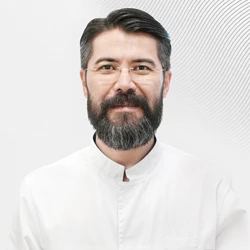
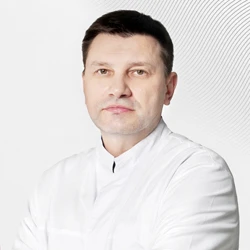
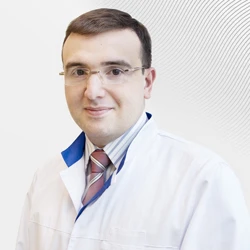
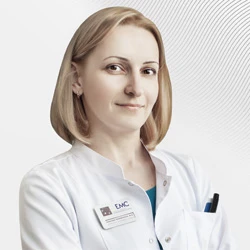
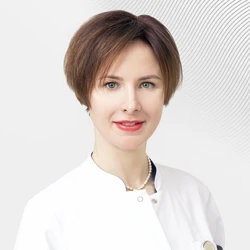
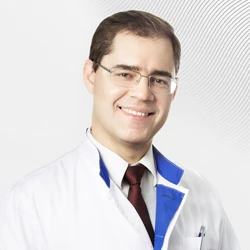
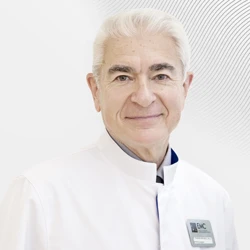
.webp)
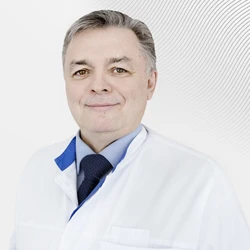
.webp)
.webp)
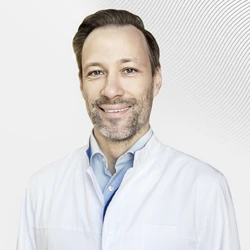
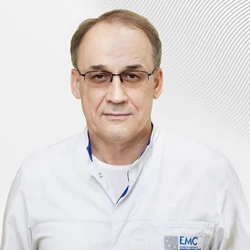
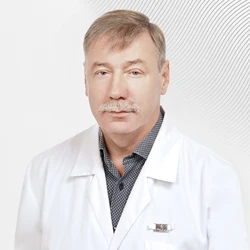
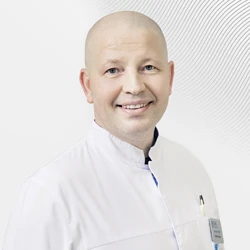
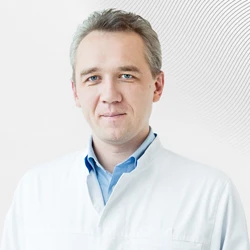
.webp)
